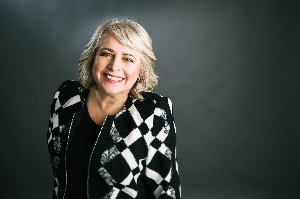by Daniel Smith

Susan Taylor
A legal dispute for the FSCL to acquire ombudsman status has just been extended through a High Court decision in favour of the dispute resolution scheme.
The FSCL appealed a decision of Ombudsman NZ to deny them the title on the grounds that chief ombudsman Peter Boshier had predetermined his decision.
High Court judge, Justice Grice found, “I am satisfied that the chief ombudsman predetermined FSCL’s application. Therefore, the decision is unlawful and must be set aside.”
FSCL lawyers attempted to get Justice Grice to make a decision on the matter of FSCL attaining ombudsman status during the day’s court proceedings.
But Justice Grice denied the request stating it “involves matters of policy which are outside the expertise of the Court and are not appropriate for it to assess”.
The decision is now being assessed by the Parliamentary Ombudsman’s office, with Boshier expected to make a decision again.
The fight for FSCL to attain ombudsman status has been ongoing for almost a decade.
Susan Taylor, CEO of the FSCL thinks the title is one that is central to the function of the dispute resolution scheme.
Taylor says that the FSCL attaining ombudsman status is important for members and consumers.
“We are required as an approved scheme to be accessible to consumers. Some research has shown that schemes that use the ombudsman name are trusted more by consumers.”
While Taylor says the work of the FSCL is not being held back by not having the name ombudsman, she says it causes confusion for clients.
“We think that some consumers are wary of us because we don’t have the ombudsman name. Sometimes when we are dealing with cases that involve an insurance issue, if the consumer doesn’t like our decision they say ‘okay, we are now going to appeal to the Insurance Ombudsman’.
“Then we have to explain that we are actually the exact same as an ombudsman scheme. There is no right of appeal to another ombudsman to our decisions.”
Trevor Slater, a member of the Financial Dispute Resolution Service Advisory Council, and COO at Resolution Institute, believes this reason is not enough to warrant a long fought legal battle.
“If you look at the record at FSCL and how successful they are, I can’t see any reason why they need the word ombudsman in their name.
“The FSCL are a very successful organisation, so I struggle to see why the name needs to be changed at all, and also why members are financing the legal battle when as far as I understand members have never been consulted.”
Taylor says that members have not been consulted, “It’s not up to our members, it is a board decision. But I would point out that we have been successful both in the Court of Appeal and in the High Court, which has given confidence to the board’s decision that we should be entitled to use the name ombudsman.”
The High Court’s decision, though it found in FSCL’s favour, was not related to their entitlement to the name ombudsman. It was that the request should be re-reviewed by the Ombudsman’s office.
Regarding the financing of the legal battle, Taylor says “funds come from our operating funds”.
Like many of the dispute schemes, those operating costs come largely from member fees, but Taylor says “Both the fees to be charged to scheme members, and how the money raised by fees is to be spent, have to be satisfied to the FSCL board that they are meeting criteria, including accessibility.”
“It is the company's money as opposed to financial advisers’ money.”
Taylor adds, “We have not been increasing fees to pay for legal costs, and in fact we have had substantial costs awarded in our favour.”
But Slater believes that costs are not the only issue at play here.
“It’s not just the cost is it? It is the time and effort that is being put into this, and the role of the dispute resolution scheme. The role of a dispute resolution scheme should be to provide an avenue to consumers who have a complaint against a member of that scheme.
“There is nowhere in the rules of FSCL that says that part of what they do should be to get the name ombudsman. It is not a part of their role, their role should be to resolve complaints.”
But here Taylor disagrees, saying that FSCL acquiring the title “is important in terms of consumer awareness and trust in the scheme”.
| « AMP Capital sells global shares fund to Canadian firm | Mann on a mission to diversify financial advice » |
Special Offers
Sign In to add your comment

© Copyright 1997-2024 Tarawera Publishing Ltd. All Rights Reserved
There is no confusion with the public - one is a for-profit commercial business and the other a Government body created by an Act of Parliament.
Sounds like FSCL and FDRS are just looking to cash in on the name.